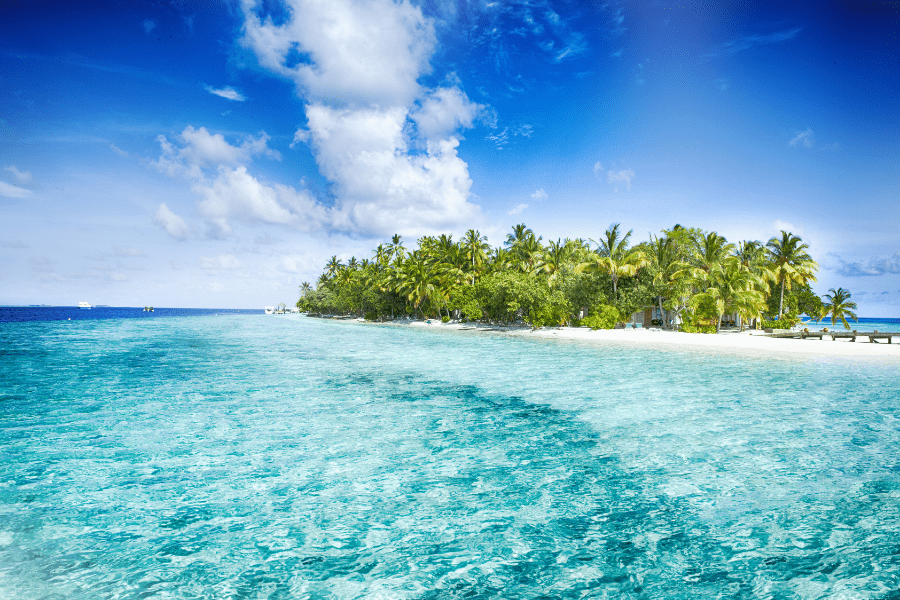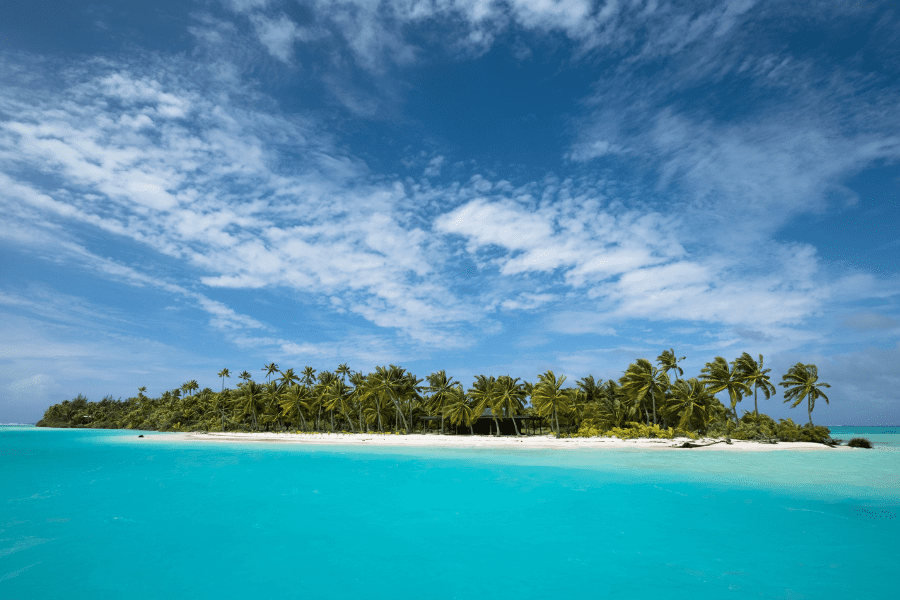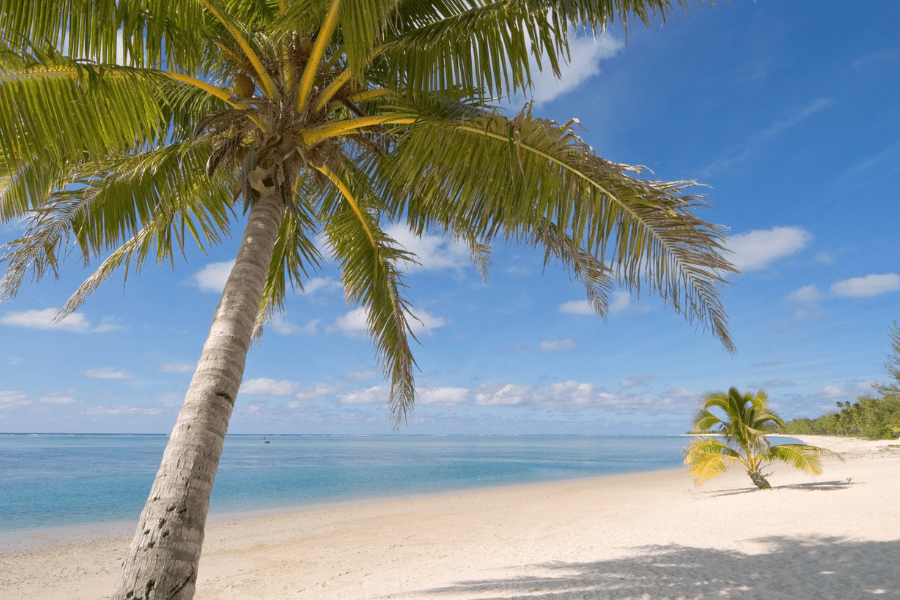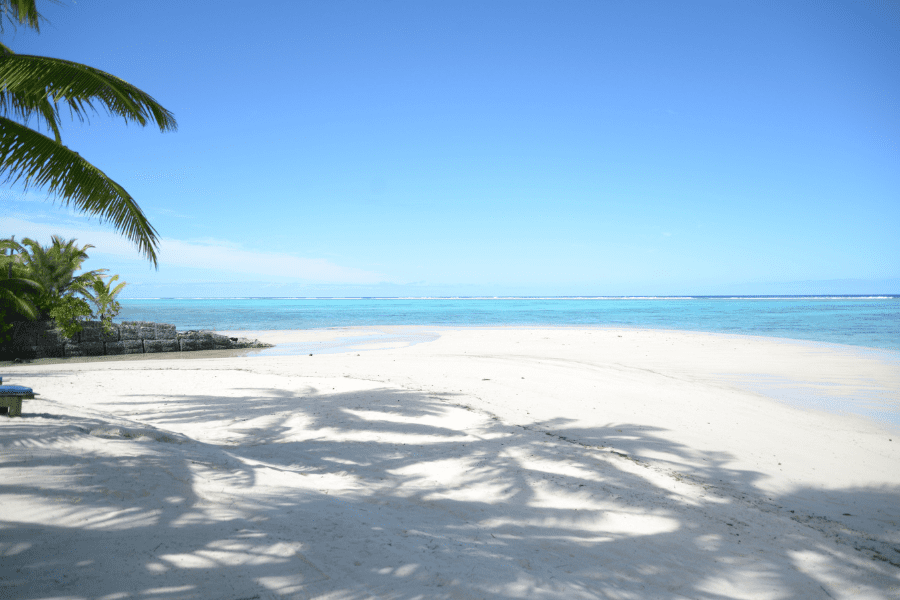How to Set Up an Offshore Cook Islands Trust in 2025: The Ultimate Guide
January 7, 2025
In the heart of the South Pacific, the Cook Islands emerges as a breathtaking blend of natural beauty, rich history and strategic allure for the investor migration industry.
Lying south of the Equator and west of Tahiti, this independent nation of 15 islands has a mere land total of 240 square kilometres but sprawls across two million square kilometres of the Pacific.
These coral-fringed paradises, a towering legacy of ancient volcanic activity, attract over 170,000 visitors each year with their South Sea charm. But corals and, thankfully, dormant volcanoes are not the only lure these islands boast.
Amidst the azure waters and lush landscapes, the past and present merge, making the Cook Islands not only a safe haven for holidaymakers but also a strategic locale for discerning investors.
Setting up a trust is one of the best ways to avoid frustrating legal disputes and protect your assets.
An offshore trust does precisely what a regular trust does – just ten times better. If you think establishing a trust protects your assets from legal complexity and unnecessary taxes, imagine what a trust in a tax-friendly offshore jurisdiction could offer in terms of privacy and protection.
So, allow the Nomad Capitalist team to delve into the details of setting up a Cook Islands trust and explain the various benefits one can offer you. This indepth analysis aims to provide insights into the process and take some of the fear out of what can be quite an intimidating activity. At Nomad Capitalist, we’ve helped more than 1500 clients protect their assets. All you have to do is reach out – we can, and will, do the same for you.
Cook Islands – Country Overview
The tiny Cook Islands sit northeast of New Zealand, between American Samoa and French Polynesia. This is a self-governing country in free association with New Zealand.
The Cook Islands has a population of just over 17,000, the majority of whom speak English and Cook Islands Māori. The official currency is the New Zealand dollar (NZD) and citizens of the islands have the right to acquire New Zealand citizenship and access government services when present in the country. It is important to note that New Zealand citizens don’t have the right of Cook Islands nationality.
The capital and the largest city of the Cook Islands is Avarua, on the island of Rarotonga.
Cook Islands – Economy
The Cook Islands’ economy primarily depends on tourism, which brings in over half of the country’s GDP. The islands receive thousands of tourists each year, mainly from New Zealand, the US, Australia and Europe.
New Zealand also contributes hugely to the Cook Islands’ economy through foreign aid. China has also provided significant foreign aid to the country.
The second largest economic sector is financial services. The country is known for its extensive trust regulations. Setting up an offshore asset protection trust in the Cook Islands is one of the best ways to protect assets from legal claims.
What is an Offshore Trust?
An offshore trust is a legal structure formed under the laws of an offshore jurisdiction to provide extra asset protection from domestic creditors.
Now that you have an overall understanding of what a trust is, it’s essential to be familiar with the language and key terms associated with trusts:
- Settlor: An individual who sets up the trust
- Trustee: Typically, a financial institution or licensed trust company, the trustee is the legal entity entrusted with managing and protecting the Settlor’s assets transferred to the trust
- Beneficiary: Any individual or institution designated by the Settlor to receive benefits from the trust.
If you would like further information on offshore trusts and the advantages that come with them, take a look at our comprehensive ultimate guide on offshore trusts.

Cook Islands – A Pioneer in Asset Protection
A Cook Islands trust is considered one of the best asset protection tools against creditors and lawsuits.
Why? They did it first.
The country developed an extensive statutory framework, the Cook Islands International Trusts Act, in 1984. Since then, it has been amended several times to comply with international regulations, provide more discretion to the settlors, and strengthen the asset protection provisions.
The Cook Islands was the first jurisdiction to add strong asset protection provisions to its trust act. In 1989, the Cook Islands asset protection trusts allowed the settlor of a trust to state themselves as a beneficiary in the trust deed.
With that one change, the Cook Islands took the lead among all other offshore trust jurisdictions. Since then, St Kitts and Nevis, Bahamas, Belize and others have adopted the same statutes in their trust regulations in order to compete.
Thanks to its comprehensive trust regulation and supporting framework, the Cook Islands has a significant case law history. Simply put, Cook Islands courts are well-versed in dealing with lawsuits against settlors and any assets held in Cook Island trusts.
The Cook Islands International Trusts Act is not the only notable legislation. Several other regulations have made the Cook Islands one of the safest jurisdictions for offshore asset protection trusts – prominent among them are:
- Anti-Money Laundering (AML)/Combating the Financing of Terrorism (CFT)
- Financial Supervisory Commission (FSC)
- Financial Transactions Reporting Act (FTRA)
- Cook Islands Financial Intelligence Unit (CIFIU).
Now that you have a brief history of the country’s efforts to be a global leader in asset protection trusts let’s look at some of the most significant benefits of setting up a Cook Islands trust.
Benefits of Setting Up a Cook Islands Trust

Defendant-friendly Jurisdiction
The Cook Islands’ legal system is considered a defendant-friendly jurisdiction for several reasons:
- It does not recognise foreign court orders or judgments. That’s legal jargon stating that if a plaintiff wins a lawsuit against a Cook Islands trust settlor in a different country, a Cook Islands court will not recognise that judgment. To collect, the plaintiff will have to travel to the Cook Islands and plead the case before a local court under Cook Islands law. This determination to prioritise Cook Islands courts and law over other jurisdictions holds huge appeal for professionals or corporations at high risk of getting sued.
- The Cook Islands judicial system puts the legal burden on the plaintiff to prove beyond a reasonable doubt that the settlor set up the Cook Islands trust with the intention and purpose of defrauding. This, of course, is very difficult to prove.
Statute of Limitation
In the Cook Islands, there is a one-to-two-year Statute of Limitations, after which the Cook Islands’ courts will refuse to hear challenges to the assets transferred into the trust. This is another bonus point for the settlor and a headache for the plaintiff. Not only does the plaintiff need to appear before a Cook Islands court, but they also must win within a year or two. Otherwise, it’s game over.

Diverse Asset Protection
Choosing an offshore trustee can be extremely frustrating, especially if you later discover they cannot effectively manage your specific assets.
In the Cook Islands, you won’t have this problem.
You can use a Cook Islands trust to protect tangible and liquid assets. Cook Islands trusts can be used to protect and manage real estate assets, intellectual property, bank accounts and the like.
A Cook Islands trust is also an excellent tool for estate planning, holding stock market or investment portfolios or passing on generational wealth (a Cook Islands trust can last indefinitely).
Trustees Who Can Be Trusted
In the Cook Islands, trustees undergo extensive background checks to become licensed and bonded, per Financial Services Council (FSC) regulations. Safe in the knowledge your trustee is bonded, you can rest easy your funds are therefore insured against any wrongful actions by the trustee.
A Cook Islands trustee cannot benefit from the trust in any way. A trustee’s role and extent of authority are limited to the contents of the Deed of Trust.
Credible trustee companies in the Cook Islands conduct thorough checks on settlors seeking to establish a trust there. These checks include but are not limited to:
- Know Your Customer (KYC)
- Anti-Money Laundering (AML)
- Counter-Terrorism Financing Rules (CFT).
These checks generally include the settlor’s identity, background and financial history. Any trustee company not doing its due diligence is a red flag. Trustee companies in the Cook Islands are also heavily insured to compensate for any loss or negligence (if that ever happens).
All these attributes add several layers of protection for the settlor.

Flexible and Private
A settlor can be a beneficiary of the trust per the Cook Islands Asset Protection Trust Act.
Moreover, the Cook Islands regime provides a lot of flexibility when structuring a trust. You can use the trust deed to set terms which fit your needs and plans.
Your assets don’t need to be transferred to the Cook Islands to be protected under the Cook Islands trust law, as a Cook Islands trust can protect assets outside the country. However, the trustee must reside in the Cook Islands.
In the Cook Islands, trust deeds don’t have to be publicly registered, providing an extra layer of privacy to the settlers and beneficiaries.
How to Set Up an Offshore Trust in the Cook Islands
Once you choose a Cook Islands trustee, you must follow the following steps.
Consult Professionals
The worst thing you can do while setting up an offshore trust is to treat it as a DIY project. Trusts, especially offshore trusts, are considered a serious business here. If not done correctly, they can add to your troubles rather than eliminate them.
Always consult professionals who are well-versed in these matters so that they can help you find the best way forward. At Nomad Capitalist, our expertise lies in comprehensive offshore strategies. We’ve helped many clients protect their assets through offshore trusts, and we can do the same for you. All you have to do is contact us so we can get things started.
Identify All Trust Parties
The most important part of the trust creation process is the identification of trust parties and delegating their roles. Ask yourself:
- Do you want to state yourself as the beneficiary?
- What kind of trust do you want to establish (revocable or otherwise)?
- How many beneficiaries will there be?
Asking yourself questions like these (and many more) will help you create a comprehensive trust deed with long-term benefits.
Complete the Paperwork
This stage includes everything from gathering the supporting documents for setting up a trust to drafting the final legal document (offshore trust agreement).
You may need the following documents to set up a Cook Islands trust:
- Passport/Driver’s License
- Trust Form
- Proof of Funds
- Banking Reference Letter
- Address Details
- Deed of Trust
- Deed Insurance
- Letter of Wishes
- Sworn Affidavit of Solvency/Solvency Certificate.
The above list isn’t exhaustive and you may need additional (or fewer) documents based on your personal situation. For example, if you include an entity like a limited liability company as a trust asset, you may need to file relevant documents.
Transfer Assets
The final step is to transfer your assets to the Cook Islands trustee. Once done, the settlor can rest easy knowing their trust assets are well-managed and protected.
Who Should Set Up a Cook Islands Trust?
Setting up an offshore trust is beneficial for high-net-worth individuals. However, even if you are not particularly wealthy, an offshore trust can be extremely useful, especially if you are a service provider in a country where lawsuits and litigation are common (such as the United States).
Healthcare providers, architects, real estate developers and CEOs are all professions where nasty lawsuits are an unpleasant fact of life. If you fear asset mismanagement or exploitative litigations in the future, you should consider setting up a Cook Islands trust.
And if you fear getting lost in the world of offshore trusts and all its complexities, consider becoming one of our clients today. Offshore is our specialty and we’d love to help you live your dream offshore life.
How to Set Up an Offshore Cook Islands Trust in 2025: FAQs
The Cook Islands has one of the most comprehensive frameworks to protect trust assets from creditors. Moreover, all the regulations comply with international financial security requirements, making Cook Islands trusts some of the safest in the world.
The Cook Islands is a self-governing state in free association with New Zealand. It’s not part of New Zealand.


The Best Countries for Investing in the Middle East 2025
The global investment landscape has changed dramatically. Gone are the days when opportunities were limited by geography or confined to traditional stocks and bonds sold only through standardised, rigid and often cumbersome channels. Back then, going ‘global’ might have just meant adding a few European equities to a US-based portfolio. Today, everything has changed. Barriers […]
Read more

Best Gulf Country for Company Formation and Business Setup
For ambitious entrepreneurs, the Gulf region offers a powerful blend of top-tier banking systems and business-friendly laws that streamline company formation and make the process remarkably efficient. Countries like Bahrain, Kuwait, Oman, Qatar, Saudi Arabia and the United Arab Emirates (UAE) are actively competing to attract the world’s brightest business minds – and it’s working. […]
Read more

Top Offshore Tax Havens in the Caribbean
When people hear the term ‘tax haven’, it often conjures up images of shadowy offshore bank accounts and shady financial dealings. The reality is far more practical and much less sinister. Caribbean tax havens aren’t just for billionaires or corporations with armies of lawyers. In fact, many everyday entrepreneurs and investors take advantage of the […]
Read more




